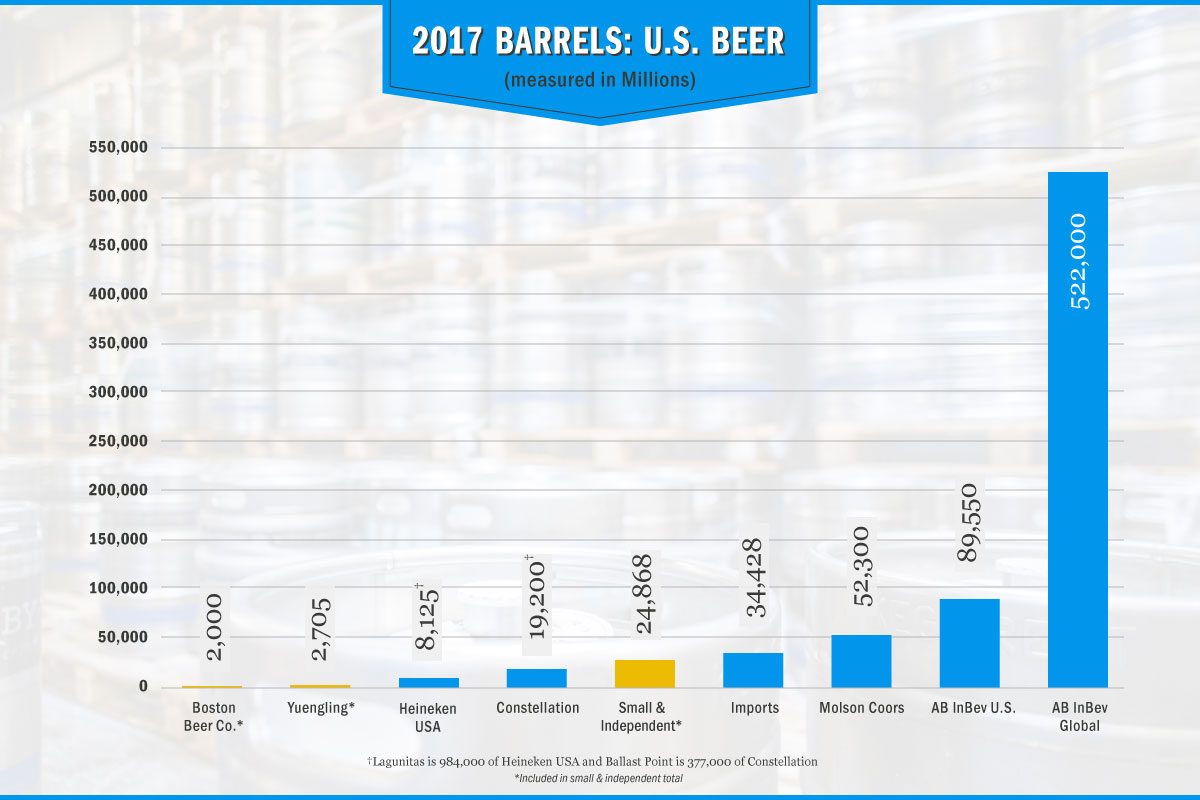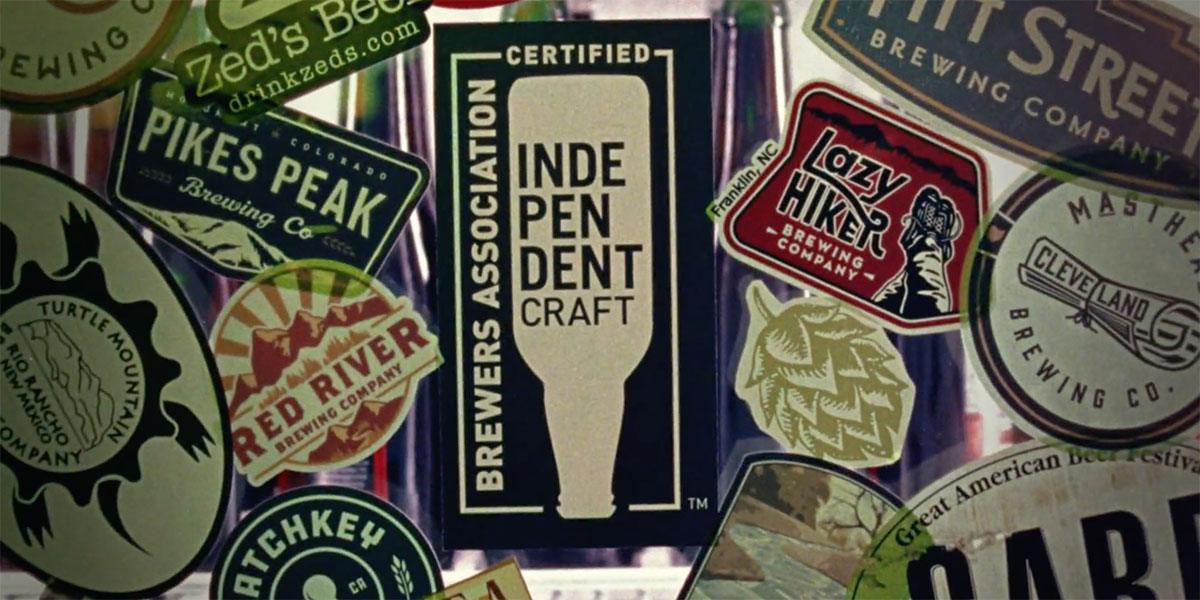In his August articleOpens in new window in VinePair, Aaron Goldfarb accuses the Brewers Association (BA) of fomenting disunity in the US beer industry. He suggests that the BA, which is dedicated to “promoting and protectingOpens in new window” craft brewers, is wrong in developing an independent craft brewer seal and promoting the positive attributes of independent craft brewers.
[newsletter_signup_box]
On the contrary, the BA’s activities are an honest effort to help craft brewers compete with megabrewers, which are buying some craft brewers and using their clout to gain control of the craft segment the way they control the mainstream light lager segment of the industry.
(MORE: Craft Brewing Growth Statistics for 2017)Opens in new window
This is competition, and it is nothing new.
Independents have no choice but to band together and differentiate themselves.
American brewers have always competed fiercely. Over the years, the megabrewers have called each other out for use of ingredients other than water, malted barley, yeast and hops. They have challenged each other’s advertising claims in national ads. “Beer wars” have long been a staple of media coverage of the industry. So what is wrong with small brewers vigorously defending themselves? Corporate brewers have huge advantages over independents. Independents have no choice but to band together and differentiate themselves.
Craft brewers are rising for the same reasons wine and spirits are rising at the expense of light lager beer: they are giving consumers what they want — interesting beverages for all occasions.
Light lager domination is declining, not beer.
Mr. Goldfarb is not incorrect to point out gray areas created by the BA’s craft brewer definition: small (less than 6 million barrels), independent (not more than 25 percent owned by a non-craft brewer), and traditional (more than 50 percent of production is craft beer). Founders Brewing Co. chose not to hue to the BA definition. My company, with a 24.5 percent investment from Kirin, chose to do so. Yes, Duvel Moortgat is an “international brewer,” but it brews well under 6 million barrels annually. Comparing it to Anheuser-Busch InBev (ABI) (522 million barrels globally) or Heineken (186 million barrels globally) is absurd. Yes, private equity is demanding but it does not confer any unfair advantage in the marketplace. Private equity is just money, impatient money. And no one is more independent than Dick Yuengling.

What does Goldfarb think independent brewers should do? Embrace the companies that relegate us to the bottom of the cooler; that get us thrown out of our hometown ballparks; that make their distributors sign “equity” contracts that insure unequal treatment, that lobby for laws that enable them to give away wearables, tv sets, coolers, Super Bowl vacations and endless chotskies to gain customers–the kind of incentives craft brewers could never afford? (Interestingly, an August 3 article by VinePair Editor Emily Saladino asked 10 brewmasters to name their favorite stadium beer. Eight of the 10Opens in new window were companies wholly owned by ABI. Guess what their favorites were?)
(MORE: BA Unveils ‘That’s Independence You’re Tasting’)
In 1980, there were fewer than 50 brewing companies in the USA. Independent brewers had been bulldozed by the megabrewers. The Brewers Association of America (BAA), a precursor to today’s Brewers Association (BA), was called “the last man standing club.” The BAA did not fight back. The BAA actually was dependent on the megabrewers for financial and political support. The BAA could not fight back.
Thankfully, the BA can.
Would craft brewers embracing corporate brewers arrest the decline of light lager? Would it enable the brewing industry to better compete with wine and liquor? Would the US beer industry be better off without independent craft brewers speaking their minds?
I don’t think so.
CraftBeer.com is fully dedicated to small and independent U.S. breweries. We are published by the Brewers Association, the not-for-profit trade group dedicated to promoting and protecting America’s small and independent craft brewers. Stories and opinions shared on CraftBeer.com do not imply endorsement by or positions taken by the Brewers Association or its members.


Share Post